Table of Contents
Dog poop can be composted, but due to health risks, it is not recommended to use the resulting compost for edible plants or crops. To ensure safe compost material for your garden, adhere to strict guidelines regarding preparation and compost conditions. Hot composting and Bokashi are effective methods for processing dog manure as compost.
It is highly recommended to have a dedicated compost system in a sunny area when composting dog poop. The ideal Carbon:Nitrogen (C:N) ratio for composting dog poop is about 1 part carbon to every 2 parts nitrogen. Maintain the optimal temperature range of 130 to 170 degrees Fahrenheit by turning the compost regularly. Lower temperatures may slow down the decomposition process, but this method does not guarantee the elimination of all pathogens and parasites.

Do not compost manure from infected dogs or those that have been medicated or on a special diet, as these wastes may contain harmful elements that can survive the composting process. To avoid health risks, consider alternative methods for handling dog poop.
Industrial composting and repurposing manure as biogas are sustainable alternatives for dog owners. Additionally, professional pick-up services like DoodyCalls can manage your pet’s waste.
Read on to learn more about safely and efficiently composting dog waste at home.
How to Compost Dog Poop
For a healthy and safe compost material made from dog poop, adhere to strict preparation guidelines and ensure optimal compost conditions.
Preparing Dog Poop for Composting
Before composting, inspect the dog poop and remove any rocks or foreign objects embedded in the stool. Consider using compostable bags like Beco Pets’ Poop Bags–which can be added directly to your home compost–instead of single-use plastic bags that may end up in landfills. If compostable poop bags are not available, designate a specific area in your space for dog manure.
Always wash your hands with soap and running water after handling dog poop for composting.
A separate compost system for dog poop is highly recommended. Using a dedicated compost bin for this waste reduces the risk of cross-contamination of pathogens and parasites with your other composting materials.
For best results, find a sunlit spot for your dedicated compost area to help increase the pile’s temperature.
Optimal Composting Conditions for Dog Poop
To create a nutritious compost product from dog poop, balance nitrogen-rich green materials and carbon-rich brown materials. Mix dog manure, food waste, and grass clippings with carbon-rich materials like dried leaves, shredded paper, wood chips, and sawdust. The ideal Carbon:Nitrogen (C:N) ratio for composting dog poop is about 1 part carbon to every 2 parts nitrogen.
This simple recipe from a cooperative study between Alaskan mushers and the Fairbank Soil and Water Conservation District combines 1 part pure sawdust as a carbon source with 2 parts dog manure as a nitrogen material. The high levels of carbon from the sawdust raise the compost’s temperature, allowing microorganisms to thrive.
Put the dog feces in the center of the pile, mix the ingredients evenly, and cover with sawdust to reduce unpleasant odors that may attract flies.
Keep the temperature range between 130 and 170 degrees Fahrenheit, which indicates microbial activity in the pile. If possible, use a long-stemmed backyard thermometer to monitor the temperature regularly. Turn the pile to aerate the ingredients and distribute the heat evenly. However, this optimal temperature range does not guarantee the elimination of all pathogens and parasites.
By maintaining these optimal conditions, you can ensure a proper composting process and produce nutritious compost for your ornamental plants.
How Long Does Dog Poop Take To Compost?
Hot composting can transform your dog’s poop into nutritious compost within 4 to 8 weeks. The duration of the composting process depends on the previously mentioned pile conditions.
How Dog Poop Affects the Composting Process
Your dog’s poop–which is high in nitrogen–makes an excellent addition to your dedicated compost pile. However, incorporating it can influence key aspects of the composting process.
Impact on Decomposition
Due to its high nitrogen content, dog poop can speed up the decomposition process. However, if mishandled, the vast number of microbes in the manure are risks to human health. Inadequate preparation and poor management might result in unsuccessful dog poop composting.
Microbial Activity
By balancing dog poop with brown materials, you can create a healthy soil additive. However, the waste can introduce pathogens and parasites that may potentially disrupt the composting process and harm the microorganism community responsible for breaking down the organic waste. To minimize this risk, maintain an optimal temperature range of 130 to 170 degrees Fahrenheit.
Temperature and Moisture
To effectively break down organic matter, aim for an ideal temperature range of 130 to 170 degrees Fahrenheit, as decomposition is most productive at these levels. Routinely turning the pile allows oxygen to permeate, ensuring good compost quality. If there is excess moisture, balance it with added carbon materials.
Potential Issues With Composting Dog Poop
Improper preparation and management of dog poop composting can potentially result in troublesome pests and parasites. Additionally, piles without proper aeration may produce unpleasant odors.
Will Composting Dog Poop Attract Pests?
Household flies may be attracted to foul smells emitted from mismanaged home composts. To reduce the risk of unpleasant odors, mix dog poop evenly with the rest of the pile and cover it with sawdust. Other pests that come with composting dog manure are large roundworms called Toxocara Canis. The decomposition process may not kill these parasites. It is best to use compost material from dog poop only for ornamental and non-food plantings.
Will Composting Dog Poop Cause Odors?
Improper management of dog poop compost generally leads to unpleasant odors. Failing to achieve high temperatures for composting the manure can result in an unaerated and damp pile, which may cause odors.
Methods for Composting Dog Poop
Not all composting methods are suitable for dog poop. For safe composting, explore the options below.
Hot Composting
Hot composting is suitable for dog poop as it uses the high heat produced by microorganisms to quickly break down organic matter. Use 1 part pure sawdust as your brown material and 2 parts dog manure as your green material. The high carbon levels from the sawdust raise the compost’s temperature, allowing microorganisms to thrive.
Sustain the optimal temperature range between 130 and 170 degrees Fahrenheit. Regularly monitor the temperature using a long-stemmed thermometer. Turn the pile to aerate the materials with oxygen, and even out the heat distribution. However, this method does not guarantee the elimination of all pathogenic microbes and parasites.
Bokashi Method
The Bokashi method ferments organic materials–such as dog poop–inside a specialized Bokashi bin. Unlike other composting methods, this method keeps your materials away from oxygen. It uses a unique mixture of inoculant bran to begin the fermentation process.
Using the Bokashi method is an easy way to compost your dog’s poop, especially in limited spaces. You can also avail and build your own Bokashi Pet Waste Disposal System.
Alternatives to Composting Dog Poop
Alternatives are available if you can’t compost your dog’s waste. Explore the options below to find out which one is feasible for you!
Industrial Composting of Dog Poop
In some cities in the United States, free pet waste recycling services are available that turn waste into compost. For example, Envirowagg composts dog manure in an in-vessel tumbler at Soil Rejuvenation Garden Bed Supply in Longmont, Colorado. Denver-based company Pet Scoop collects dog waste from public places and delivers it to Envirowagg’s processing plant.
Reach out to your nearest commercial composting facility to find out how they accept pet poop. This option is ideal for those who cannot compost at home.
Reusing Dog Poop
Your pet’s waste can be turned into energy! The Park Spark project uses a pet-waste digester to convert dog poop into flammable methane. This product can be used for boiling water, baking bread, and even powering a streetlight.
However, this innovation is not widely available in most states.
Disposal Options for Dog Poop
If none of the options are feasible, dispose of the dog poo properly. You can either flush it down the toilet or seal it in a biodegradable poop bag and throw it in your household trash.
Consider scheduling pick-up services with DoodyCalls, which sends trained technicians to handle your waste issue at home.
For a list of animal waste specialists in your area, you may refer to Sweep&Go’s Pooper Scooper app.
What Dog Poop Shouldn’t Be Composted?
Discard dog wastes from sick dogs, particularly those with infectious, parasitic, and gastrointestinal diseases. These wastes may contain disease-causing microbes that may persist even after the composting process. To prevent health risks, dispose of such wastes properly.
Exclude dog manure from medicated animals from your compost. Deworming medications and antibiotics can contaminate your compost and soil if not disposed of properly.
Apart from medication, special diets on dogs can potentially alter the composition of their poop. Avoid using such wastes in your compost as they may introduce chemicals or substances that could affect the composting process or threaten plants and organisms.
Safety and Precautions When Composting Dog Poop
Always wear gloves when handling your dog’s waste and wash your hands with soap and running water afterward to remove potential bacteria. Confine the dog waste in a specific area, preferably away from children.
An excellent way to reduce health risks while composting dog waste is to ensure your dog stays healthy. Attend their worming schedule regularly and avoid feeding them raw meat or fish that could introduce parasites into their system. Regular veterinary care is essential!
Finally, use the dog poop compost only for ornamental plants, not for edible ones.
FAQ
Can I compost dog poop with worms (vermicomposting)?
You cannot safely compost dog poop with vermicomposting. Efficient composting of dog poop requires high temperature levels, which most worms may not survive. Additionally, canine bacteria from the dog poop can potentially harm your worm farm.
Can I use dog poop as fertilizer?
You should not use unprocessed dog manure as fertilizer. However, when properly composted, the resulting material can nourish ornamental plants. It is not recommended to use dog poop compost on food crops to avoid contamination from any surviving pathogens and parasites.
Can I use dog poop compost in my vegetable garden?
It is not recommended to use dog poop compost in your vegetable garden. Pathogens and parasites may survive the composting process, and using it on edible plants could cause contamination and threaten human health. Instead, use the resulting compost for indoor plants and flower beds in your yard.


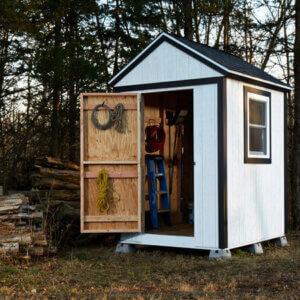

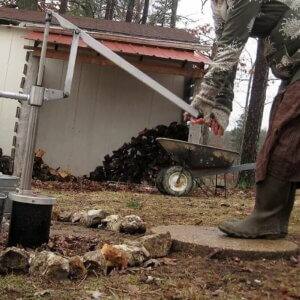


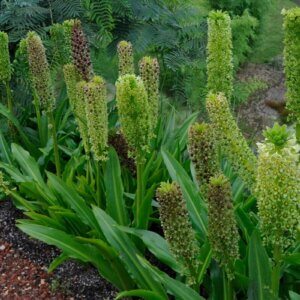




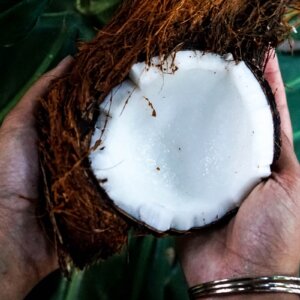
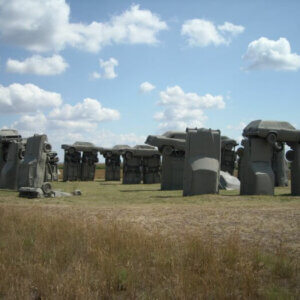


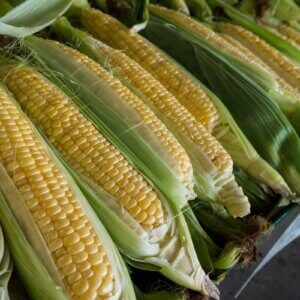



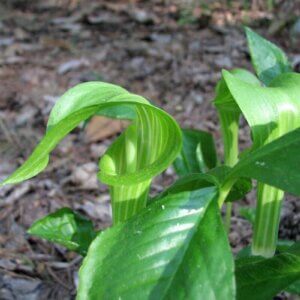


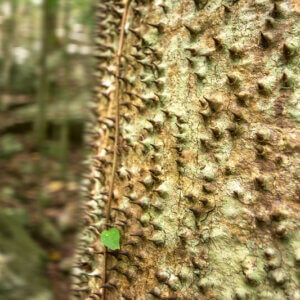
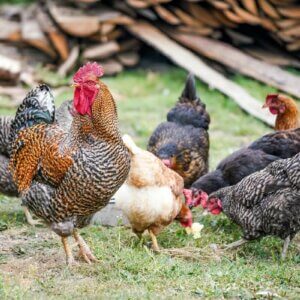









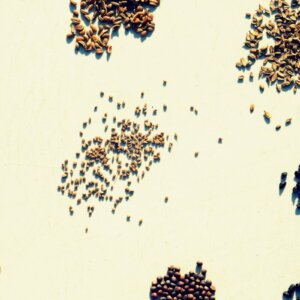


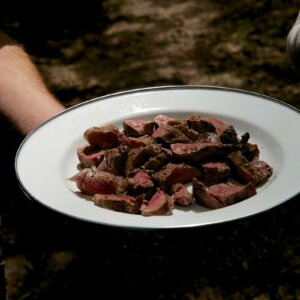

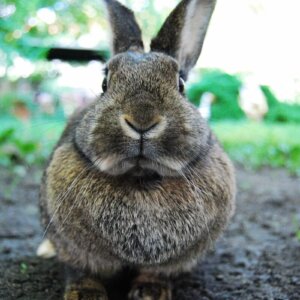


Leave a Reply